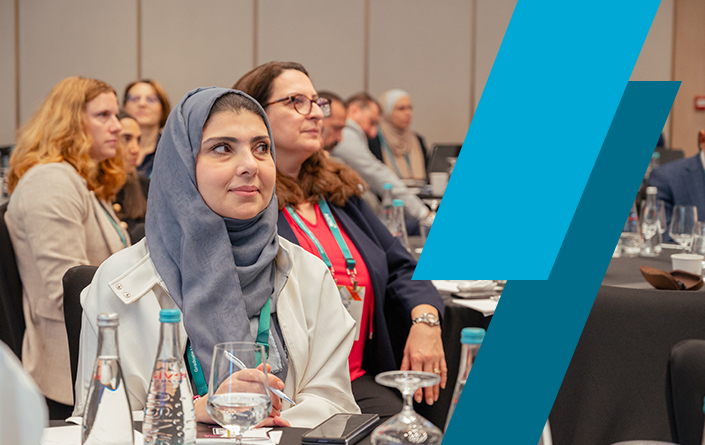Constructive Disagreement: A Critical Skill for Business Leaders
- An essential part of leadership is being able to effectively engage with opposing views. Business educators must take an active role in helping students understand how to navigate disagreement constructively.
- Verbal expressions of curiosity and perspective-taking help foster respectful dialogue, especially in socially cautious environments.
- Students are inherently reluctant to disagree with each other, but they can develop constructive disagreement skills through structured practice opportunities leveraging online modules, simulations, and real-time feedback.
Transcript
Julia Minson: [00:15] If you look back over the last, let's say, five years, every few months, there has been a new topic that is incredibly contentious that people struggle to discuss.
[00:26] A few months from now, there's going to be some other thing. We don't know what it is, but we know it's coming.
[00:32] I think it's incredibly important for business educators to prepare future leaders to embrace opposing views. A lot of leadership is a function of getting people to put their ideas out in the open and then figuring out how to combine the best ideas.
[00:48] And so, from an education perspective, it's an ongoing task to really build those skills in our students. A lot of the time, scholars in communication and organizational behavior talk about the importance of curiosity or perspective taking.
[01:02] We take a slightly different tack: you have to show your curiosity and show the other person that you're taking their perspective. Most of the time, you can do that most directly with words.
It's incredibly important for business educators to prepare future leaders to embrace opposing views.
[01:15] So, rather than trying to become more curious and hoping that my counterpart realizes that I'm trying to be curious, I can express my curiosity through language, right?
[01:26] I can say things like, 'I would really like to understand your perspective on this issue,' or 'I know lots of people disagree, and I appreciate the fact that other people think about this differently. I'd like to hear where you're coming from.'
[01:40] Verbal signals are much less ambiguous than body language and can go a very long way toward helping people have more constructive discussions.
[01:51] I teach at the Harvard Kennedy School, and we have been working for a few years now on how to change the culture we have around disagreement.
[02:00] One of the things we found is that our students are very reluctant to disagree with each other. They really want to get along, make friends, and network. And so, they don't want to get into sort of like big, awkward conversations.
[At the Harvard Kennedy School,] we've actually been using generative AI to give people practice with constructive disagreement.
[02:12] What we've started doing is really shaping their experience from before they even come to campus, first to give them a set of ideas around how to disagree constructively.
[02:23] We put them all through an online module that teaches them some ideas based on my and other folks' research. Then, we've actually been using generative AI to give people practice with constructive disagreement.
[02:39] We've built custom-designed chatbots that students can spar with.
[02:44] The fun thing is that a chatbot can take any perspective on any topic. They don't get mad, they don't get upset, and they can talk to thousands of students at the same time.
[02:55] The thing that's really unique about the chatbots that we have developed is that they don't just give students practice; they actually give students coaching.
The most important thing we can do to have productive conversations.
[03:05] At the end of any conversation, the chatbot gives the student feedback on how well they executed the skills they learned in the online module beforehand. After the chatbot, that's when we actually let students practice their skills on each other.
[03:22] I really think of constructive disagreement as a skill that needs to be practiced.
[03:27] So, like when we teach kids to ride a bike or when we teach somebody to play a piece of music, we don't tell them a bunch of theory and then say, 'Okay, you're done now.' We make them practice for hours and hours.
[03:41] I think it's really important for people who have the ability to structure our educational environments to think about how to build in focused practice around constructive disagreement and not just let it happen naturally, because naturally it probably won't happen at all.
[03:59] The most important thing we can do to have productive conversations, which we have found in our research, is to clearly show the other person that we're truly engaged with their perspective.






